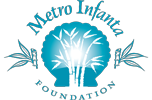Editor’s note: Former Ambassador Rudy Arizala has written extensively for Metro Infanta Foundation, not only on Infanta, but also of Philippine historical interests
By Rodolfo A. Arizala
Santiago, Chile. As everybody knows, August is the month when Philippine Commonwealth President Manuel L. Quezon of Baler, Tayabas (now Maria Aurora province), was born. It was also during the month of August when he died in the United States of America and when World War II was about to end. He was born on 19 August 1878 and died on 01 August 1944. He died without seeing the liberation of the Philippines from the Japanese occupation forces. However, Quezon left us historic legacy and political testament.
MLQ´S Legacy
There were many good things he had done for our country and people such as freedom, progress, social justice, peace and security. In his inaugural speech on 15 November 1935, he reminded his people as follows:”There can be no progress except under the auspices of peace. Without peace and public order it will be impossible to promote education, improve the condition of the masses, protect the poor and ignorant against exploitation and otherwise insure the enjoyment of life, liberty and property. . .”
And to have a secure and lasting peace, he believed that we should have an effective national defense. Consequently, the first law enacted during his administration was Commonwealth Act No. 1, otherwise known as the “National Defense Act” of the Philippines. The “Citizen Army” created by Quezon under the National Defense Act saw action in Bataan and Corregidor during World War II and proved to the world that they were willing to die and make sacrifices for the freedom and liberty of their country and people.
MLQ´S POLITICAL TESTAMENT
During World War II while exiled in the United States of America, Philippine Commonwealth President Manuel L. Quezon on 26 October 1943 wrote a letter to U.S. President Franklin D. Roosevelt considered to be Quezon´s “political testament” pertinent portions of which read as follows:”As you know I have been ill for a long time and, in any event, God alone knows whether I shall live long enough to see my country and talk to my people again. What follows is my political testament to my people. . . .After the lessons of the present war, one would be very blind indeed not to see that the post-war relationship between the Republic of the Philippines and the Republic of the United States should be as close as, if not closer than, our relationship before the war. The security of both the United States and the Philippines, and perhaps the future peace of the Pacific, will depend very much on that relationship.
“In the same letter to U.S. President Roosevelt, President Quezon stated the Philippines could be a “bridge” between the East and the West in the following words:
“My advice and counsel to the Filipino people is that they should preserve and perpetuate their Occidental way of life which they can only do through continued association and cooperation with America and the western world. Geographically, we Filipinos are Orientals, and will forever be so. Spiritually, that is to say, because of our culture and Christian civilization, we are with the west. The great destiny of the Filipino people, as I conceive it, is to play the role as the connecting link between Orient and Occident.”CommentsThese are the thoughts that occurred to my mind as we commemorate this year the birth and death of our beloved President Manuel L. Quezon, “The Paladin of Philippine Freedom.”
* Rodolfo A. Arizala is a lawyer and former Philippine ambassador.






